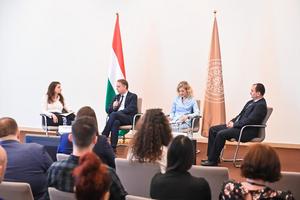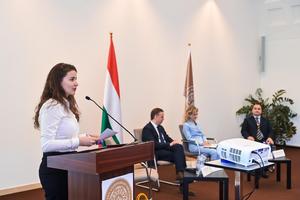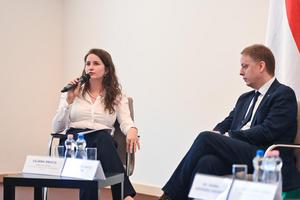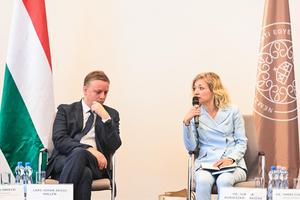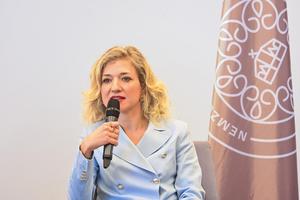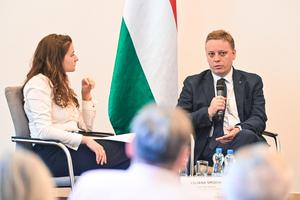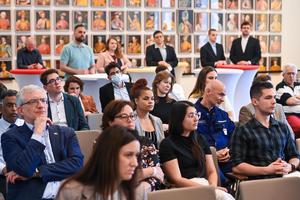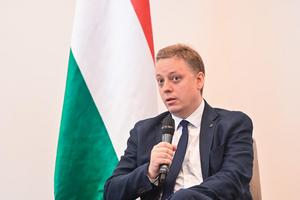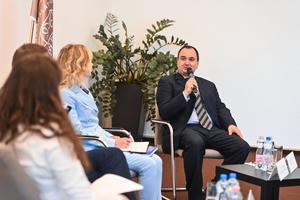The conference titled "Into the Breach: Europe’s call to Arms" held on April 10th at the Ludovika University of Public Service (LUPS) addressed current issues in European defense policy with the participation of distinguished foreign speakers. Hosted by the International Directorate of LUPS, the event focused on topics such as the Russo-Ukrainian armed conflict and the implications of Sweden's NATO accession.
Liliana Śmiech, the International Director of LUPS, served as the moderator of the event and highlighted in her introduction the significance of the recently unveiled European defense industrial strategy, presented on March 5th, aimed at enhancing the continent's preparedness and security. She emphasized the strategy's focus on intra-European cooperation in defense procurement, citing the numerous economic benefits it entails. However, Śmiech noted that historical precedents suggest that national interests may not always align with stated objectives.
During the roundtable discussion, Csiki Varga Tamás, Senior Research Fellow at the John Lukacs Institute of LUPS, pointed out that since the 2009 financial crisis, European countries have been prioritizing their resources and seeking increased cooperation to establish more unified regulatory frameworks.
The question couldn't be avoided at the conference regarding the positions of different countries in the arms sales rankings: accordingly, the United States is in the first place, followed by France, Russia, and Germany, along with China. So, the two most important countries in the EU are among the top five.
Joanna Siekiera, a Polish international lawyer and instructor at the American Marine Corps University, pointed out that despite good relations among various European member states, money always takes precedence, and therefore it cannot be guaranteed that different strategic and defense-related information will be shared among them. She emphasized the differences in how member states reacted when the Russo-Ukrainian war broke out and how they viewed the introduction of economic and political sanctions. She also mentioned that American laws prohibit the purchase of Chinese weapons even for training purposes. However, she raised the question of how we can defend ourselves and counter influence techniques. "These are burning questions because if we don't protect ourselves, no one else will," Siekiera said.
Arvid Hallén, energy policy expert and program director at the Oikos Society in Sweden, concluded from the comparison between the United States and Europe that the United States has many capabilities in the defense sector that are lacking in European member states, with imbalance being characteristic in the latter case. He added, however, that the idea of a short-term war breaking out between NATO and Russia is highly unlikely in the next two to three years. But what happens in five years? Who knows what will happen if a new president takes office in NATO? He believes that Europeans need to consider these questions.
It was also mentioned that through a new European defense industrial program worth 1.5 billion euros, the European Commission will provide funding for the preparation of the defense industry, and they will ensure the integration of defense needs into the EU's next long-term budget. Experts also addressed the fact that it is impossible to formulate what cybersecurity or cyber threats are, as there is no international treaty coordinating these areas. Finally, it was said: it seems that the post-Cold War era is really over, and today we live in a new, more dangerous world.
Text by: Harangozó Éva
Photo by: Szilágyi Dénes
